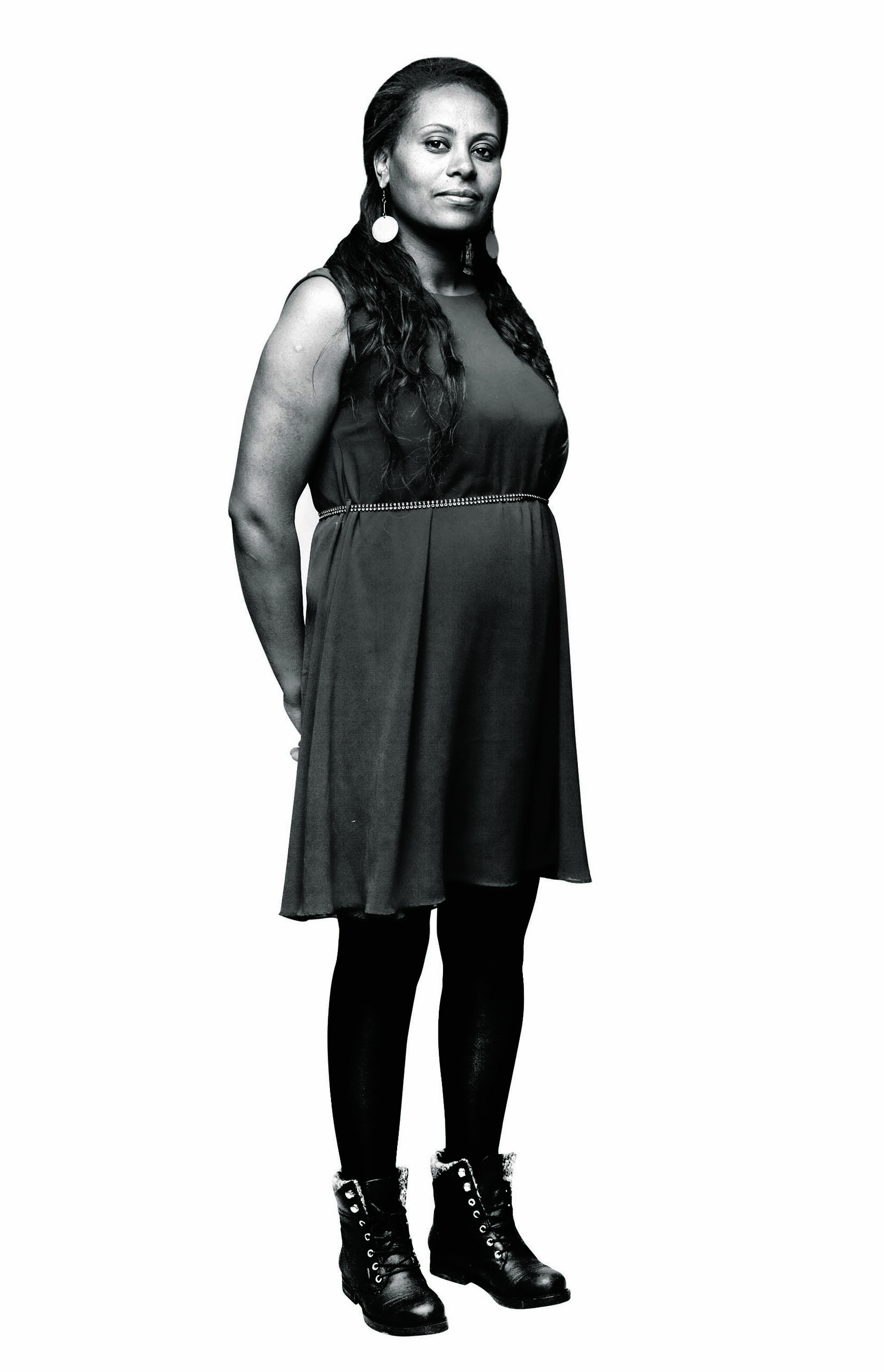
In 1997, when you were 14, you killed a man. Can you explain why?
I was abducted, and I was trying to go home. I shot not at him but to keep him away.
Why had he abducted you?
Abduction is one of the accepted methods of marriage in Ethiopia. You get abducted, and then you get raped, because as the father of your potential child, the abductor is in a higher position to negotiate with the family for your hand.
What happened after you killed him?
I was arrested immediately, and I stayed in prison for a year awaiting trial. The Ethiopian Women Lawyers Association came to my aid and fought my case. After three years, I was released.
Did you get to go home?
I couldn’t go back to my village, because the family of the guy I killed vowed vengeance and were threatening me and my family. Through elders and mediators, it was possible for my family to stay. But I was exiled. I went to Addis Ababa, the capital city, to an orphanage.
How did things change in Ethiopia after your case?
Not much changed regarding the tradition itself. But in my village for about seven to eight years, not one girl got abducted, because people knew that there were consequences. They realized that abduction is not permitted by the law. We’re just now seeing abduction come back again.
Your case was in the news, but then you went silent about your travails. Why are you speaking out now?
Because I got the chance. I left the country and was working as a housemaid in Dubai, and I wasn’t able to talk about the issue. Now with this film coming out and my job as an activist, I have a new chance to talk about what happened to me, and the tradition.
Why did you have the Ethiopian premiere of Difret interrupted last year?
I was at a place where my life still was in danger, and I felt like the film coming out would put my life at risk. I hadn’t had a chance to assess the situation.
Even when they’re not abducted, many Ethiopian girls have arranged marriages before they’re 18. Why do parents in Ethiopia allow their daughters to be married off so young?
Parents are worried that if they don’t give their daughter away early on, she might be abducted from school. So they make a deal with some man to give their daughters to him or his son. My dad had given me away to a guy who had agreed that he would wait for me to marry until I finished school. But I got abducted in between.
What do you think we have to do to change the culture of abduction?
Simple: We have to educate the men. We have to help them understand that abduction is not O.K.
Are your sisters married?
My older sister was abducted at 16 and married. She lives a horrible life. Her life goals were interrupted. She was a competitive marathon athlete. She has four kids. Her husband doesn’t work, so she’s the breadwinner of the house. She has a very difficult life.
What about your younger sister?
I get choked up. There were no abductions in my village for a while, and my sister said to me, “It’s because of you that we don’t look over our shoulders. We look forward.” She thanked me for that. And she continued to go to school, finished her education. Now she works as a nurse. Also, she got married–at about 23.
–BELINDA LUSCOMBE
This interview was conducted through an Amharic translator
More Must-Reads from TIME
- Cybersecurity Experts Are Sounding the Alarm on DOGE
- Meet the 2025 Women of the Year
- The Harsh Truth About Disability Inclusion
- Why Do More Young Adults Have Cancer?
- Colman Domingo Leads With Radical Love
- How to Get Better at Doing Things Alone
- Michelle Zauner Stares Down the Darkness
Contact us at letters@time.com